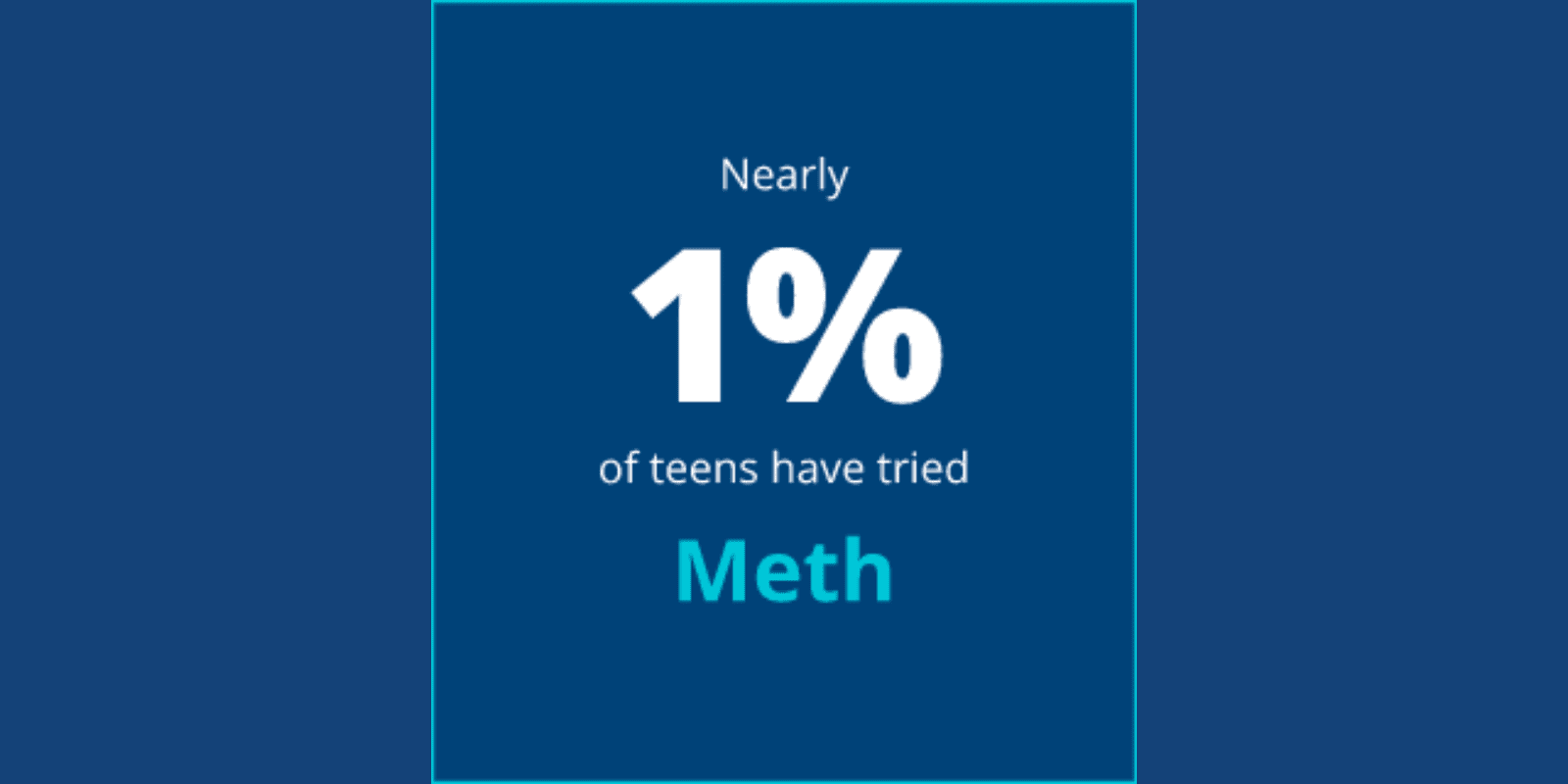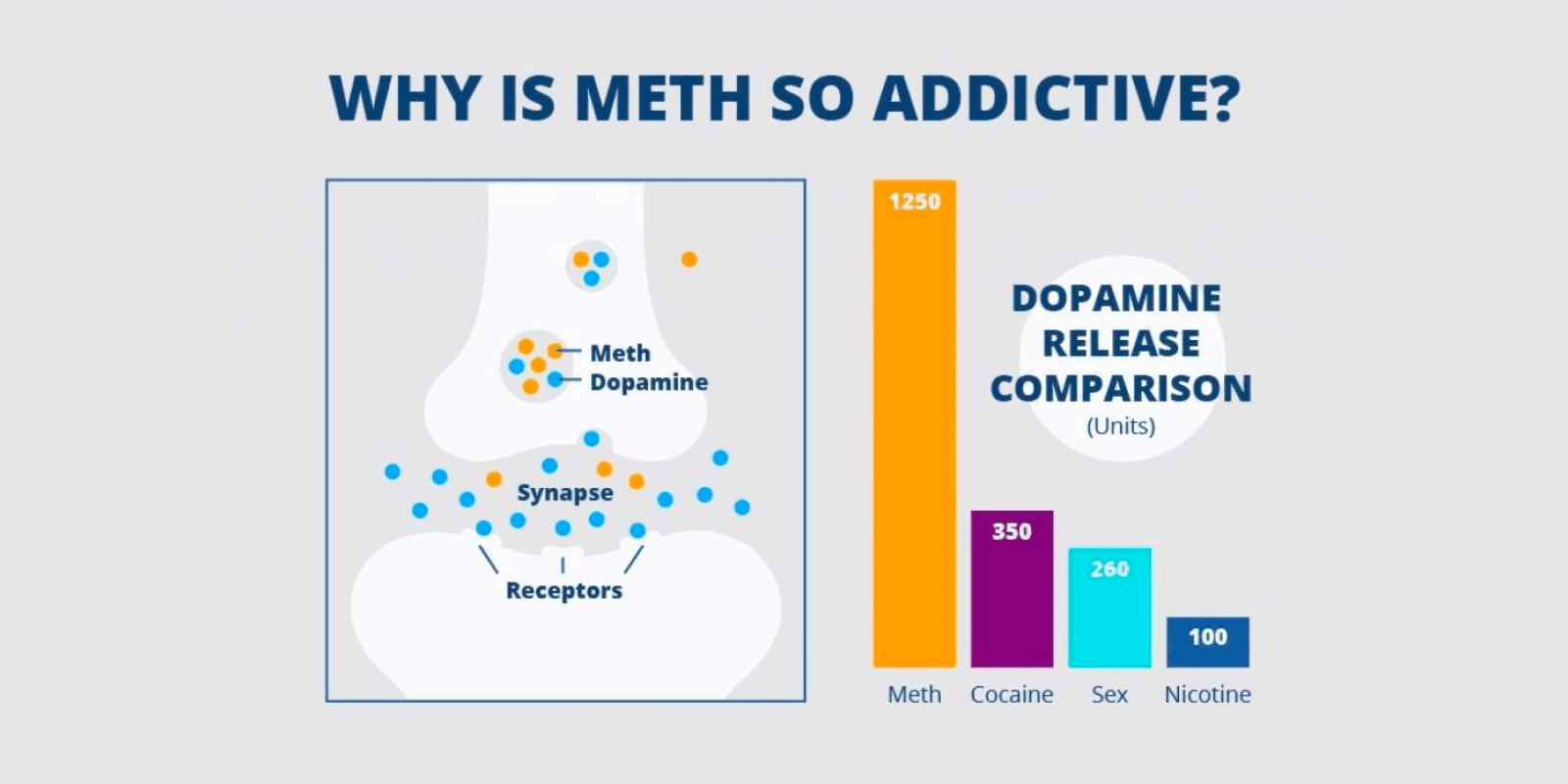Teens and Methamphetamines


As a parent or caregiver, all you want is for your teen to be healthy and safe. You desire to see them become successful, responsible and independent, but also to be protected from the many harmful aspects of society. Unfortunately, that doesn’t always happen.
There are bad things out there. And in recent years, an extremely dangerous drug has been victimizing teens. That drug is called methamphetamine, also known as meth.
A recent survey by the National Institute on Drug Abuse found that about 1 percent of high school seniors had used meth at some point in their lives. That may not sound like a lot, but it actually amounts to tens of thousands of young people in the US. If your child is one of them, there’s hope.
They can fully recover, and be the teen you know once again. But they need compassionate care, positive support and knowledgeable treatment.

Meth is a powerful stimulant that is highly addictive and highly dangerous. Stimulants are drugs that give people more awareness, alertness and energy. People use meth because it makes them experience these effects and causes them to feel intense pleasure.
Meth’s street names include chalk, crank, speed, Tina, yaba and ice. Although meth use is extremely dangerous, people who have used meth can indeed recover and live healthy, productive lives.
When someone ingests meth, it causes the brain to release a massive amount of the feel-good chemical dopamine. As a result, the user experiences an intense burst of euphoria, their heart rate rises and they feel like they have unlimited energy.
But the drug also has serious side effects. It causes blood vessels to constrict, reducing blood flow to the brain and vital organs and making stroke, heart attack, kidney failure and other serious medical issues more likely.
Once its effects wear off, the body’s dopamine is severely depleted, so the user feels burnt out, exhausted, irritable and possibly even depressed, and the cravings for more begin again.
In order to keep satisfying these cravings, people on meth often binge on the drug for several days in a row without even eating or sleeping. This practice is known as tweaking.
Because of the way meth depletes the energy their bodies need to function correctly, users often develop an appearance of extremely premature aging. Meth can also cause permanent brain damage, especially to the areas of the brain that manage emotions and memory. Other long-term effects of meth use include:

There are several signs of meth use or meth addiction. If you see your teen displaying any of the following signs, you should be concerned of the possibility that they are struggling with meth abuse.

Breaching difficult subjects with teenagers isn’t always easy. Here are some measures you can take to keep the lines of communication open and make sure your teen stays safe.
Communicate clearly and calmly.
Discuss the facts with your kid and listen to what they’re going through without getting clouded by emotions or judgment. Check in with yourself beforehand to make sure you feel ready to do this before approaching the conversation.
Encourage your teen’s positive behavior.
Do this as often as you can, ideally on a daily basis.
Be solution-oriented.
Work towards positive outcomes instead of focusing on what’s wrong.
Set rules, and stick to them.
Even when your teen is being defiant – consistency is key.
Always know where your teen is and what they’re doing.
Teens are most likely to use drugs when they’re with their friends and away from parents. Be aware of how much time they’re spending unsupervised, and what kinds of environments they’re hanging out in.
It’s extremely hard for a parent to watch their child suffer the effects of this drug without knowing what to do. If your teen is using meth, all you want is to have them be themselves again – to fully recover and be the fun-loving young person you know.
The good news is, with help, they can get clean and live a healthy and fulfilling life. Here are some points to keep in mind:
If a crisis is taking place, get help immediately.
Although every parent prays that a crisis never happens, meth use is extremely serious, and it can be deadly. If your child’s life is in danger because of a medical or psychological condition associated with meth, call 911.
Seek professional advice and support.
Addiction is an insidious disorder that often has its “hooks” in users far deeper than they realize. Quitting meth once an addiction has formed often goes far beyond one’s ability to handle it on their own and requires family intervention and professional support.
The knowledgeable, compassionate team at Sandstone Care has helped countless teens recover from meth, and they can help your family – call us today at 888-850-1890 to learn more.